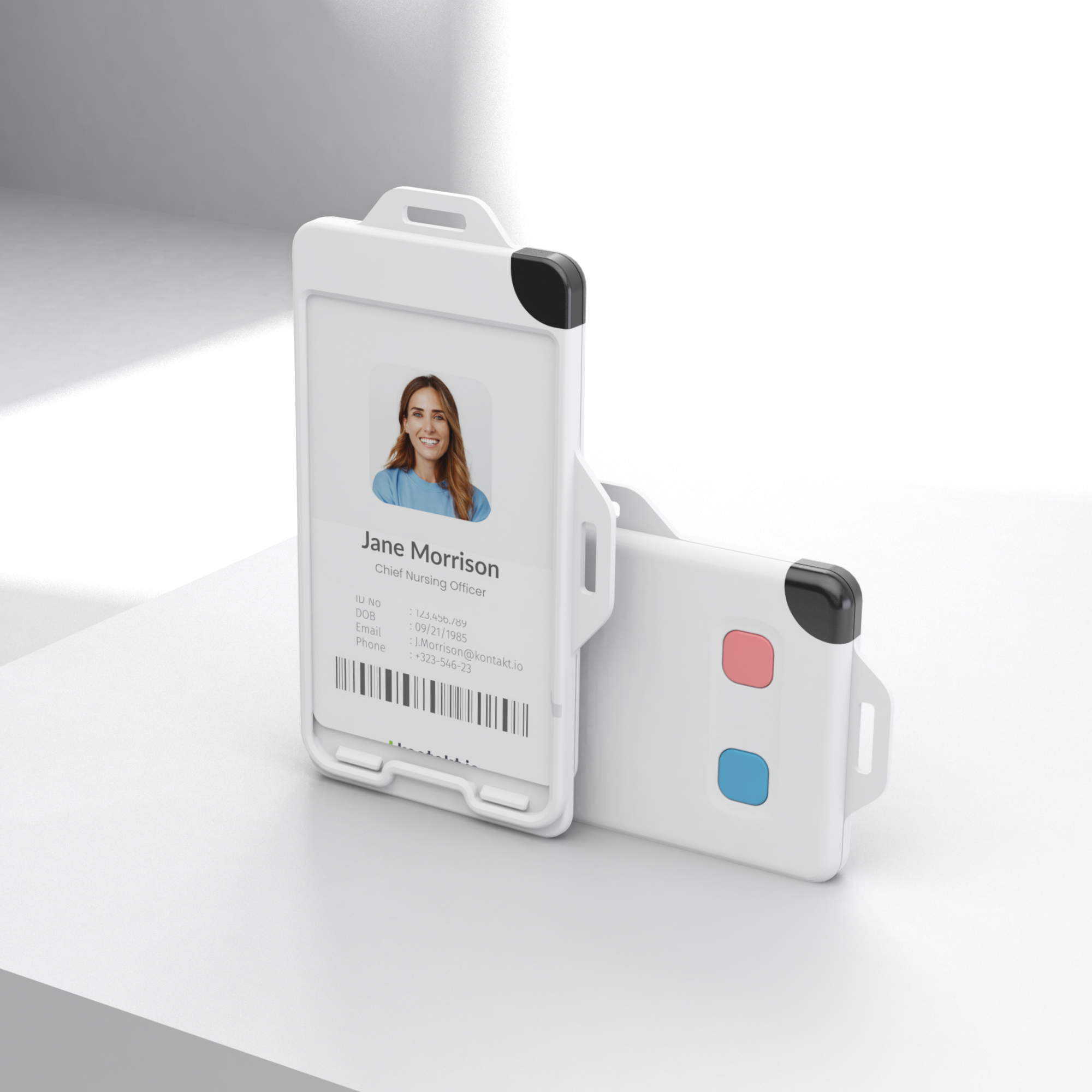We’re witnessing a paradigm shift in healthcare. Patients today are more informed and proactive than ever before: using wearables to monitor their health, track their sleep patterns, analyze their diets, and more. Today’s patients are increasingly demanding a healthcare experience that offers more than traditional, generalized care models.
The challenge for healthcare leadership lies in how hospitals can provide that level of personalization while managing an already complex and resource-intensive environment and operating on low or even negative margins.
AI in healthcare can bridge this gap, enabling hospitals to leverage patient data effectively, create predictive models, and drive tailored care plans. Alongside this, RTLS technology is revolutionizing patient flow and resource management, ensuring that the right care reaches the right patient at the right time.
AI in healthcare: enhancing decision-making and patient outcomes
The strength of AI lies in processing and analyzing vast amounts of patient data, including medical histories, lifestyle information, and real-time health metrics, to offer actionable insights. For CIOs, CNOs, CNIOs, and healthcare leadership, this means more informed decision-making, optimized resource allocation, and ultimately better patient outcomes.
Predictive analytics: a game-changer in patient care
One of the most compelling use cases of AI in healthcare is predictive analytics. With AI-driven systems analyzing patient data (in real-time with RTLS technology), healthcare providers can identify patterns and predict potential health risks long before they become acute issues.
AI-powered predictive analytics opens the door to truly personalized healthcare. Instead of waiting for conditions to worsen, healthcare teams can provide preemptive care, reducing hospital readmissions and improving patient satisfaction scores.
Customizing treatment plans
By analyzing a patient’s health history, genetics, and lifestyle factors, AI algorithms can suggest efficient and effective treatment pathways that can lead to faster recoveries, reduced complications, and an optimized patient experience. For CNIOs and CNOs, this means your clinical staff can spend less time on manual data analysis and more time delivering high-quality care.
RTLS in healthcare: the power of AI for operational efficiency and patient care
RTLS technology provides vast amounts of real-time data about patients, staff, and equipment, but without effective analysis, this data remains untapped. This is where AI comes in. AI can process and analyze the data generated by RTLS, uncovering patterns and making actionable recommendations to improve both care delivery and operational efficiency. By integrating RTLS with AI, hospitals can make data-driven decisions, optimizing patient flow, resource allocation, and staff deployment in ways that were previously impossible.
Identifying bottlenecks and enhancing patient flow
Managing patient flow efficiently can lead to costly bottlenecks and decreased patient satisfaction. By integrating RTLS with AI-powered analytics, hospitals can pinpoint exactly where these inefficiencies occur and take swift action to resolve them. For instance, if delays are happening in the radiology department, the system can analyze the root cause—whether it’s equipment availability or staff shortages—and offer data-driven recommendations to streamline operations. This proactive approach speeds up patient flow and improves overall hospital efficiency, leading to better outcomes for both patients and staff.
Maximizing physician time with patients
With RTLS and AI working together, hospitals can optimize the time clinicians spend in patient rooms. By analyzing real-time data, the system can suggest better scheduling practices and resource allocation, ensuring that physicians are spending more meaningful time with patients rather than being bogged down by administrative inefficiencies. This leads to better patient care and allows healthcare providers to operate more effectively.
Enhancing safety and compliance
Hospitals are high-risk environments, and patient safety is always top of mind. RTLS helps mitigate risks by providing immediate alerts when patients (or staff) enter or attempt to enter restricted areas. These real-time alerts allow your staff to respond quickly, reducing the risk of adverse events and improving overall patient care quality.
The role of big data in driving customization
Today’s healthcare systems are not monetizing their data, which is to say: leverage RTLS to collect the vast amount of data that’s generated across staff, patients, and equipment, and then add a layer of AI analytics to build new efficiencies and operational processes that ultimately save money and improve patient outcomes.
Why Kontakt.io is the ideal RTLS and AI solution
As a leading provider of AI-powered RTLS solutions, Kontakt.io offers a platform specifically designed for healthcare environments, providing seamless integration and a host of benefits for C-level executives.
Key advantages of Kontakt.io
- Comprehensive Monitoring: Kontakt.io’s platform enables continuous patient monitoring, providing real-time data that feeds into AI systems for in-depth analysis and predictive modeling.
- Seamless Integration: One of the standout features of Kontakt.io is its ability to integrate easily with your hospital’s existing infrastructure, minimizing disruption and maximizing ROI.
- AI-Driven Insights: The platform uses AI to convert RTLS data into actionable insights, helping you optimize workflows, enhance patient care, and improve resource management.
- Proven Outcomes: By using Kontakt.io, hospitals report significant improvements in patient satisfaction, safety, and operational efficiency.
The future of healthcare: why the time is now
AI and RTLS are not just technological add-ons, they’re transformative tools that can elevate patient care and operational efficiency to new heights. By using big data, continuous monitoring, and predictive analytics, hospitals can provide a level of personalized care that meets—and even exceeds—modern patient expectations. With partners like Kontakt.io, you have the opportunity to seamlessly integrate these solutions into your healthcare environment, positioning your hospital for success in an increasingly patient-centric world.




